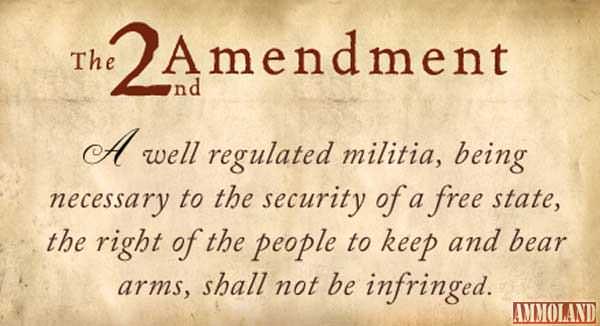
U.S.A. – In response to the Bruen decision, a few states have decided to defy the Supreme Court.
The first was New York, which took the extraordinary step to declare an emergency, call the legislature into an emergency session, and pass a complicated, extensive statute which criminalized the carry of firearms in such a manner as to render carry outside the home impractical. In spite of several lawsuits contesting the New York law, other states have followed New York’s example. One of those states is New Jersey. Bill A4769 (ACS) was passed into law on December 22, 2022.
The lawsuit, KOONS v. REYNOLDS, was filed on December 22, 2022. The judge in the case is Renee Marie Bumb.
Another lawsuit, Siegel v. Platkin, was also filed on December 22, 2022 a few hours earlier. The issues in Siegel v. Platkin are very similar to Koons v. Reynolds, but cover more issues and sensitive places. The defendants (essentially, the State of New Jersey) filed a motion to consolidate the cases on December 23, 2022.
On January 9, 2023, Judge Bumb granted a motion for a temporary restraining order (TRO) to prevent enforcement of the most egregious five sections of the New Jersey law.
CONCLUSION
Plaintiffs have demonstrated a probability of success on the merits of their Second Amendment challenge to the relevant provisions of Chapter 131 Section 7(a), which criminalizes carrying handguns in certain “sensitive places,” subparts 12 (public libraries or museums), 15 (bars, restaurants, and where alcohol is served), 17 (entertainment facilities), and 24 (private property), as well as section 7(b)’s ban on functional firearms in vehicles. The State may regulate conduct squarely protected by the Second Amendment only if supported by a historical tradition of firearm regulation. Here, Plaintiffs have shown that Defendants will not be able to demonstrate a history of firearm regulation to support any of the challenged provisions. The deprivation of Plaintiffs’ Second Amendment rights, as the holders of valid permits from the State to conceal carry handguns, constitutes irreparable injury, and neither the State nor the public has an interest in enforcing unconstitutional laws. Accordingly, good cause exists,and the Court will grant the motion for temporary restraints. An accompanying order of today’s date shall issue.
The lawyer for the Siegel lawsuit, Daniel L. Schmutter, argued the Siegel case should be consolidated with the Koons case, because considerable work and research had already done in Koons. There was no need to duplicate it. The State of New Jersey wanted the Koons case to be consolidated with the Siegel case under Judge From the January 13 decision to consolidate cases:
For all of these reasons, the defendants’ motion to consolidate is granted in part and denied in part. The Court will consolidate the Siegel matter into the Koons matter, but the Siegel matter will consolidate — I am sorry. I think I repeated that. The Court will consolidate the Siegel and Koons matter but — so this is the denied part — the Siegel matter will be consolidated into the Koons matter. To the extent claims are still outstanding with respect to the temporary restraints, those are hereby reserved for further proceedings following the reassignment of this matter to Judge Bumb.
Another hearing on January 26, 2023 is scheduled before Judge Renee Marie Bumb.
New Jersey is in the United States Court of Appeals for the Third Circuit. New York is in the United States Court of Appeals for the Second Circuit. The Second Circuit has reversed lower courts decision to grant a temporary restraining order against enforcement of the New York law. As of January 24, there has not been an appeal to repeal the temporary restraining order in the Koons matter to the Third Circuit.
Opinion:
These cases are moving through the court system relatively quickly. This correspondent believes the reason is the clear guidance given by Justice Clarence Thomas in his decision in Bruen, on how the lower courts are to treat the Second Amendment. The New York and New Jersey lawsuits are far from the only cases where the Bruen decision is being cited as decisive. Cases all over the country are seeing clear guidance in Bruen, as opposed to the muddy obfuscation of a “two step” “interest balancing” process erected in the appeals courts in response to Heller, McDonald, and Caetano.
About Dean Weingarten:
Dean Weingarten has been a peace officer, a military officer, was on the University of Wisconsin Pistol Team for four years, and was first certified to teach firearms safety in 1973. He taught the Arizona concealed carry course for fifteen years until the goal of Constitutional Carry was attained. He has degrees in meteorology and mining engineering, and retired from the Department of Defense after a 30 year career in Army Research, Development, Testing, and Evaluation.

